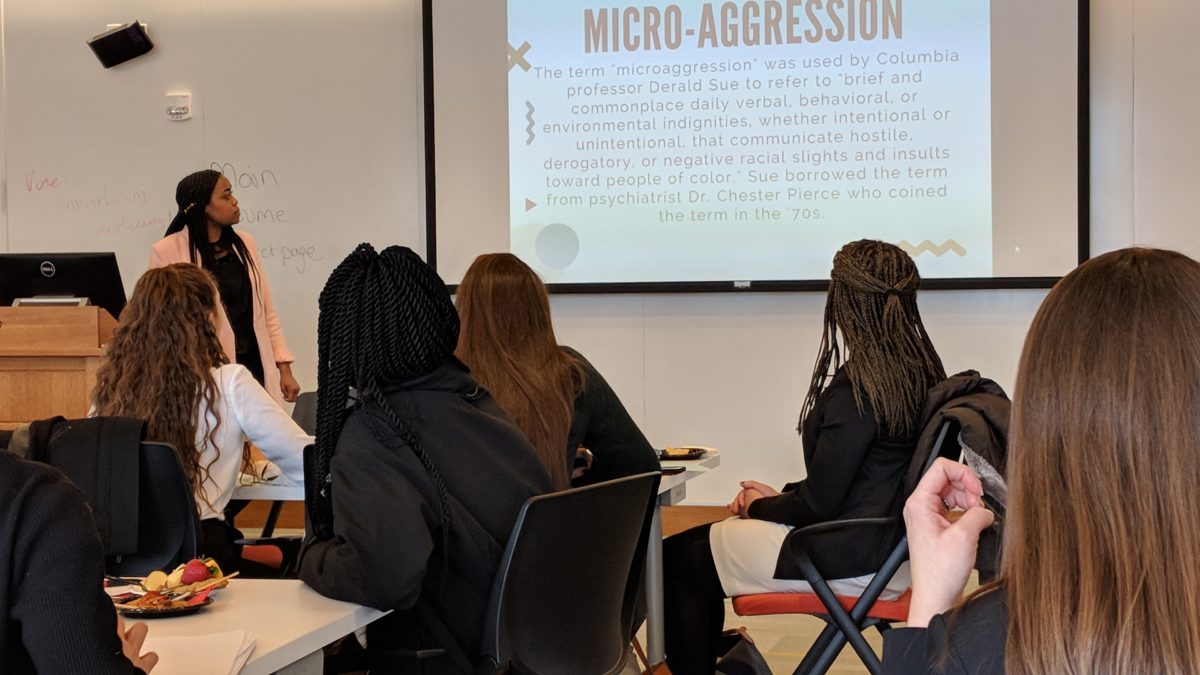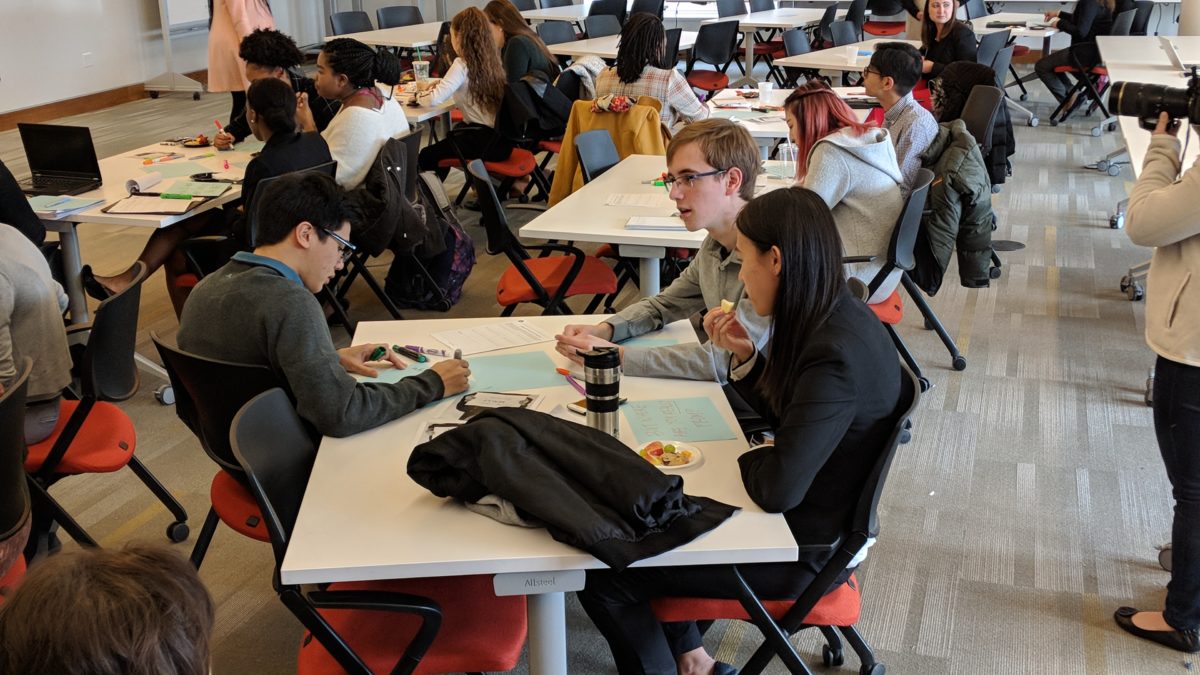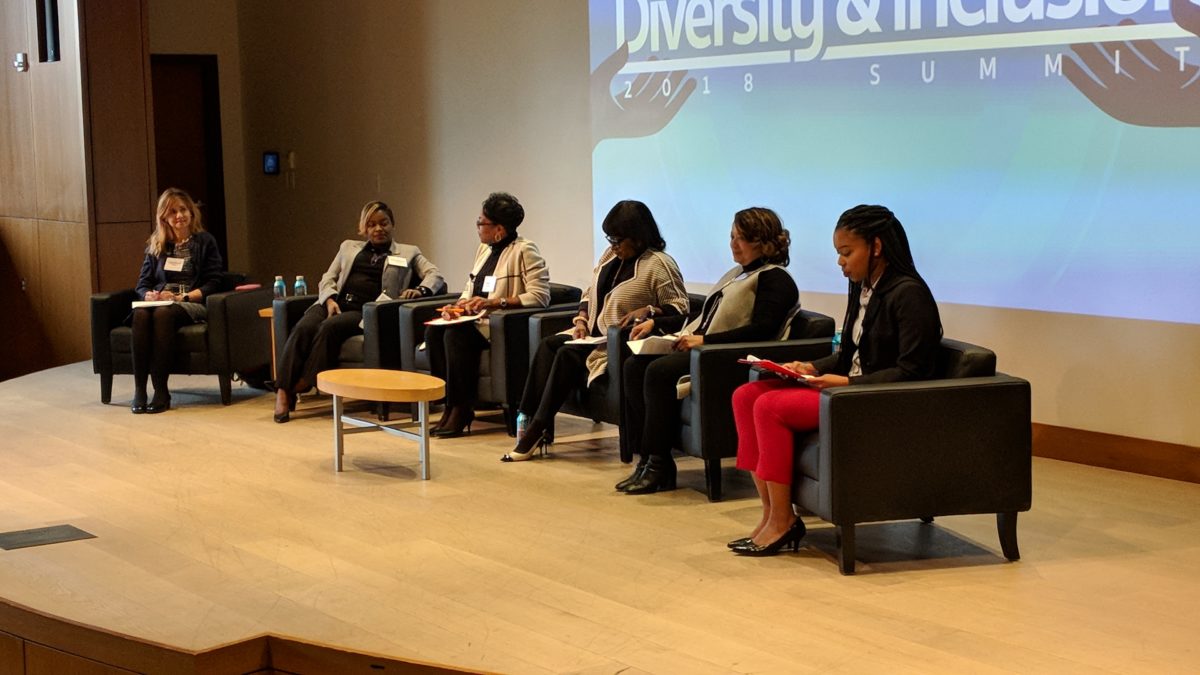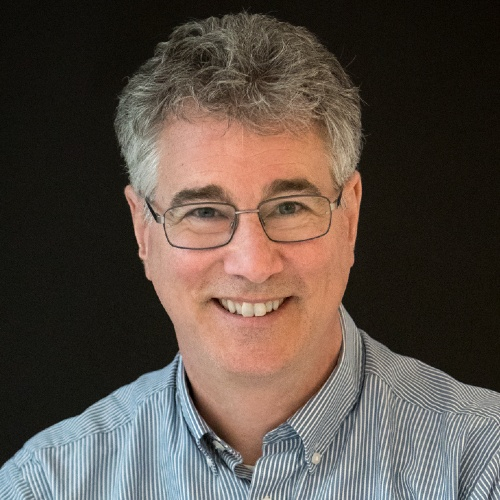Students learn to ‘SPEAK’ against microaggressions
- February 12, 2018
- By Kurt Greenbaum
- 3 minute read


“Do you need sponsorship to work here?”
“Why don’t you use your ‘black voice’ when you speak?”
“We needed to hire some women.”
These were just a few of the dozen off-putting statements—microaggressions—Olin students recalled hearing in their lifetimes. The litany of indignities launched a session on coping with microaggressions, one component in Friday’s Diversity and Inclusion Summit, organized by students from Phi Gamma Nu, Delta Sigma Pi, and Alpha Kappa Psi.
“Inclusion is a duty to act in order to celebrate diversity,” said Lexi Jackson, an Olin sophomore and codirector of the summit.
The afternoon event began with a panel discussion featuring D&I leaders at several top St. Louis-area companies, including Edward Jones, Pfizer, Build-A-Bear Workshop, Express Scripts, and US Bank.
Charlyn Moss, an Olin sophomore and codirector of the event, moderated the panel discussion. She asked panelists about their biggest personal challenge while engaging in diversity and inclusion work.
“I thought some of the battles I fought in college my kids wouldn’t have to be fighting,” said Susan Stith, vice president, diversity, inclusion and corporate giving for Express Scripts. “And now my kids say, ‘What did you do? Why are we still fighting these same battles 30 and 40 years later?’ That’s a hard place to be in.”
Each panelist expressed gratitude for working in a corporate environment that valued and nurtured its commitment to an inclusive workforce. Arvetta Powell, director of diversity and associate experience at Build-A-Bear, spoke of being recruited from Walmart to create a D&I infrastructure at her company.
“To come and be given a blank canvas was a great opportunity. To create the diversity platform from the ground up has been wonderful,” Powell said.

The summit included a session on women in technology as well as the interactive program devoted to coping with microaggressions, where session leader Keisha Mabry, an adjunct lecturer at WashU, introduced the “SPEAK” technique:
Seek to Understand
“You have to get your mindset in that place. They’re saying this because it’s some truth of theirs. When we change our mindset, it allows information to be processed differently. I’m not saying you shouldn’t be angry. I’m saying you have to be in a mindset to seek to understand. When you’re not, you’ll have an impulse response.”
Process and Practice
“Everyone should have someone they can turn to as a sounding board to help you think strategically and logically.” Figure out a scenario when you can talk to the person and tell them what you heard.
Expose and Educate
“It can be so hard. This is when you actually speak. Oftentimes we feel like it’s not our responsibility to educate.” If you don’t want to educate, you can work with someone who can play that role for you. “If you state a problem, you better be ready to state a solution and figure out the resources you need to implement the solution.”
Ask Questions
“The asking of questions does not come until there is trust and rapport. Once that foundation is built, that’s when the trust is built.”
Keep at It
Create opportunities. The goal is to change the system, not the person. “This is exhausting.”
Don’t forget to register for Washington University’s Day of Discovery & Dialogue 2018 — Staying Resilient in Challenging Times, running Tuesday evening on the Medical Campus and Wednesday on the Danforth Campus.
Media inquiries
For assistance with media inquiries and to find faculty experts, please contact Washington University Marketing & Communications.
Monday–Friday, 8:30 to 5 p.m.
Sara Savat
Senior News Director, Business and Social Sciences
